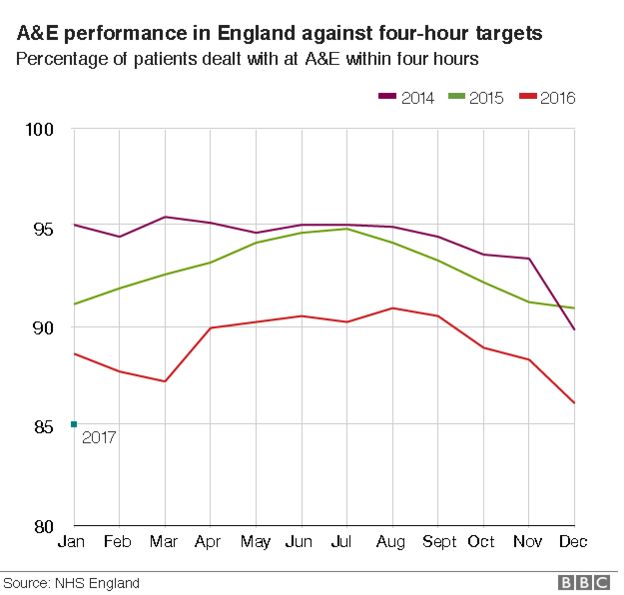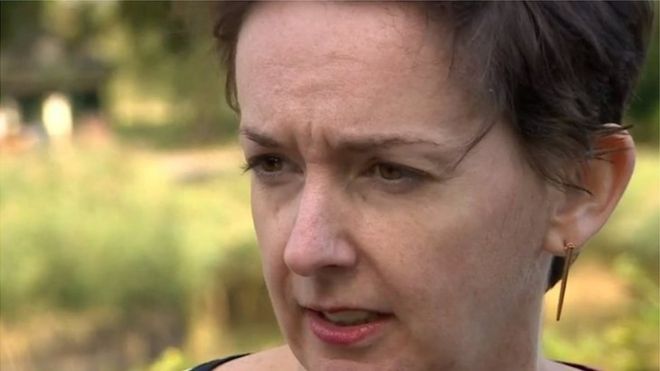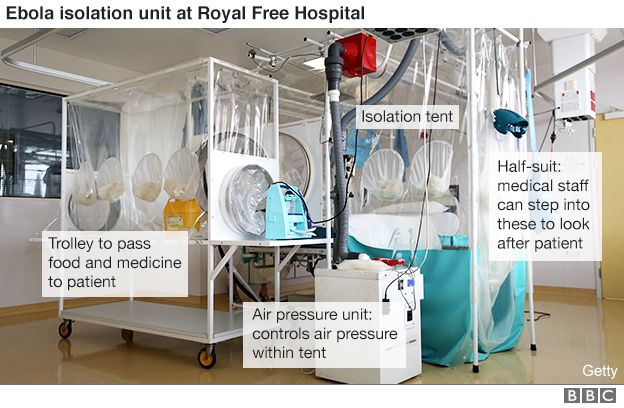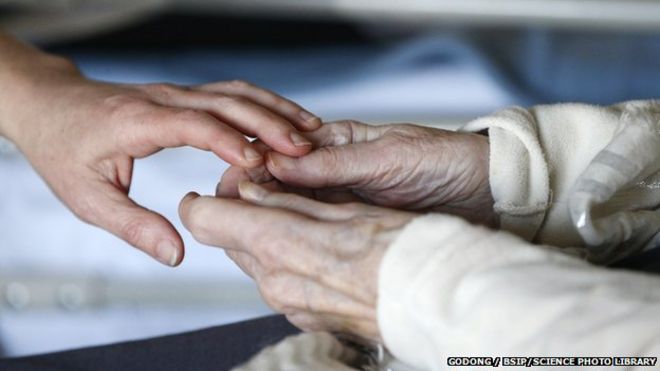By Nick TriggleHealth correspondent, BBC News
NHS trusts will have to appoint a guardian to help whistleblowers in England, ministers have confirmed.
The measure was called for by Sir Robert Francis after he warned staff too often faced "bullying and being isolated" when they tried to speak out.
Sir Robert, who led the public inquiry into the Stafford Hospital scandal, also said a new national officer should be appointed to help the guardians.
The government immediately accepted all his recommendations.
Health Secretary Jeremy Hunt said: "If we don't get the culture right we will never deliver the ambitions we have for the NHS."
He said he agreed with the proposals in principle, but would now consult on how best to implement them.
And he added legislation to ensure whistleblowers were not discriminated against when they went for other jobs would also be introduced.
Sir Robert's Freedom to Speak Up Review took evidence from over 600 people about their experiences, while another 19,000 responded to an online survey.
It said there were lots of examples of organisations supporting whistleblowers.
But it also said too many were put off speaking up because they "fear victimisation", while others do not raise concerns because they feel they will not be listened too.
The review heard stories of staff that have faced isolation, bullying and counter-allegations.
In some extreme cases when staff had been brave enough to speak up their lives had been ruined, it said.
 A "significant proportion" of health workers are afraid to speak out, Sir Robert Francis said
A "significant proportion" of health workers are afraid to speak out, Sir Robert Francis said
Sir Robert told the BBC: "I've heard some frankly shocking stories about [staff] whose health has suffered, and in rare cases who've felt suicidal as a result of their perception of them being ignored or worse."
He said raising concerns should be "welcomed and celebrated".
His review called for:
- A "Freedom to Speak Up Guardian" to be appointed in every NHS trust to support staff, particularly junior members.
- A national independent officer to help guardians when cases are going wrong.
- A new support scheme to help NHS staff who have found themselves out of a job as a result of raising concerns.
- Processes established at all trusts to make sure concerns are heard and investigated properly.
Analysis
By Hugh Pym, BBC Health Editor
Perhaps the most eye-catching remark by Sir Robert Francis this morning is that two years, almost to the day, since his final report on the Mid Staffordshire scandal there is still a "serious problem in the NHS" relating to whistleblowers.
Sir Robert says that even after the drive for transparency following Mid Staffs there are still too many staff who are afraid and who had told his review they had seen colleagues suffer.
He proposes there should be "guardians" appointed at hospitals to support whistleblowers, but if the trusts pay their salaries will they be truly independent?
Sir Robert does not feel he can offer an amnesty for whistleblowers currently in dispute with employers - the legal process, in his view, must be left to take its course though he urges employers involved in cases to "reflect" on his report.
Sir Robert pointed out that the key change needed related to cultural rather than regulatory reform.
Few would disagree that culture change needs more than a report from an eminent QC.
The recommendations have been made despite a growing focus on patient safety since Sir Robert published his public inquiry in 2013 into the Stafford Hospital scandal.
One of the main findings of that report was that people within the NHS knew about the poor levels of care at the hospital, but did not raise the alarm.
Since then a number of initiatives have been launched to improve safety.
Jeremy Hunt: "The message must go out today that we are calling time on bullying, intimidation and victimisation which has no place in our NHS"
In 2012 NHS Employers launched its "Speaking Up Charter" asking trusts to commit to helping staff raise concerns.
And last year the government unveiled its "Sign Up to Safety Campaign" - a three-year plan to halve avoidable harm through greater transparency, collaboration with other trusts and support for staff.
But Sir Robert said the NHS had still not got it right.
He argued: "There is a serious issue within the NHS. It's not just about whistleblowing, it is fundamentally a patient safety issue.
"The NHS is blessed with staff who want to do the best for their patients. They want to be able to raise their concerns free of fear that they may be badly treated when they do so and confident that effective action will be taken.
"Unfortunately I heard shocking accounts from distressed NHS staff who did not have this experience when they spoke up."
Case study
Staff who gave evidence to the review complained of being labelled a "snitch" and being "punished" if they raised concerns.
One nurse described what happened to her after she complained during a team meeting about the care being provided at her trust.
She was later called into an office by two managers and shouted at until she was reduced to tears.
She then described being criticised at every opportunity thereafter and at her next appraisal the comments from managers were critical. Her mental health was also questioned.
She said, to her knowledge, the concerns she raised were never looked into and she did not pursue it for fear it would damage her career.
'Persecution'
Dr Raj Mattu, a cardiologist who was suspended then sacked after raising concerns about patient safety in 2001, said it was frustrating and depressing that there had been "very few biting changes" to protect whistleblowers.
He said there was still "persecution of whistleblowers on a grand scale" in the NHS.
Dr Kim Holt: "I don't want any whistleblower to suffer like I did"
Asked why this was the case, he said medical staff were in their jobs because they wanted to help patients but many senior staff were there for a "career in management".
"What then happens is the interests of the trusts and the NHS conflict from time to time with those of the patient and many of us who are whistleblowers feel compelled under moral obligation to speak up," he said.
He called for independent assessment of whistleblowers' claims, and "real protections" for those raising concerns.
Dr Mark Porter, of the British Medical Association, said: "The freedom to raise concerns without fear of reprisal is vitally important for patient safety.
"We need to put an end to the climate of fear that has built up in the NHS over a number of years, and everyone in the NHS - especially those in managerial and leadership positions - must lead by example to make this a reality."
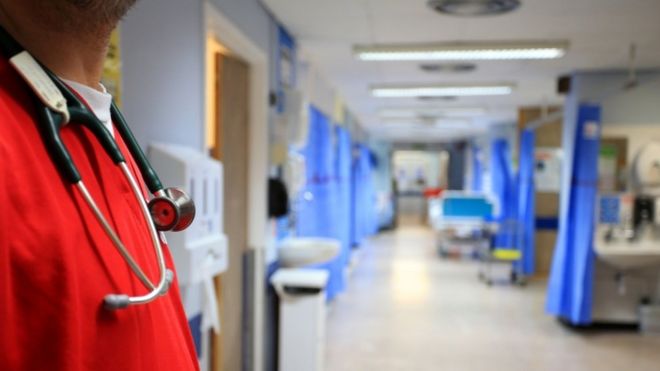 PA
PA